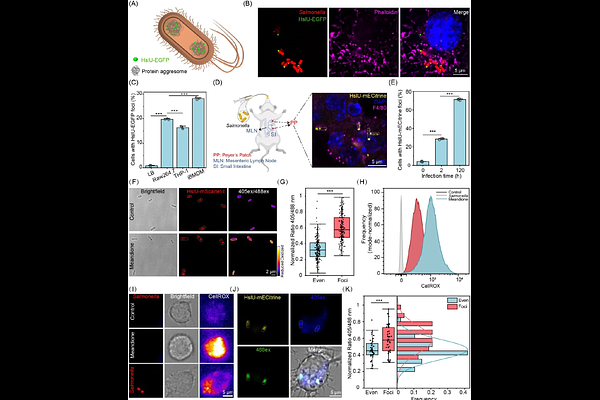Macrophage-derived reactive oxygen species promote Salmonella aggresome formation contributing to bacterial antibiotic persistence

Macrophage-derived reactive oxygen species promote Salmonella aggresome formation contributing to bacterial antibiotic persistence
Chen, X.; Fang, K.; Li, B.; Li, Y.; Ke, Y.; Ke, W.; Tian, T.; Zhao, Y.; Wang, L.; Geng, J.; Leake, M. C.; Bai, F. C.
AbstractIn this study, we reveal that macrophage-derived reactive oxygen species (ROS) can trigger the rapid formation of Salmonella aggresomes, which substantially contribute to the increased frequency of persisters induced by phagocytosis. Salmonella containing aggresomes exhibited a dormant phenotype characterized by reduced adenosine triphosphate (ATP) levels and decreased metabolic activity. Furthermore, these dormant bacteria showed upregulated expression of Salmonella pathogenicity island 1 (SPI-1)-encoded type III secretion system (T3SS)-related genes, followed by later expression of SPI-2 T3SS-related genes when macrophages ROS production declined. Our results demonstrate that Salmonella containing aggresomes can enter a dormant state to escape antibiotic attack, while crucially maintaining the ability to resuscitate when the stress environment is improved. Research on bacterial aggresomes could potentially provide therapeutic strategies to combat bacterial antibiotic persistence.